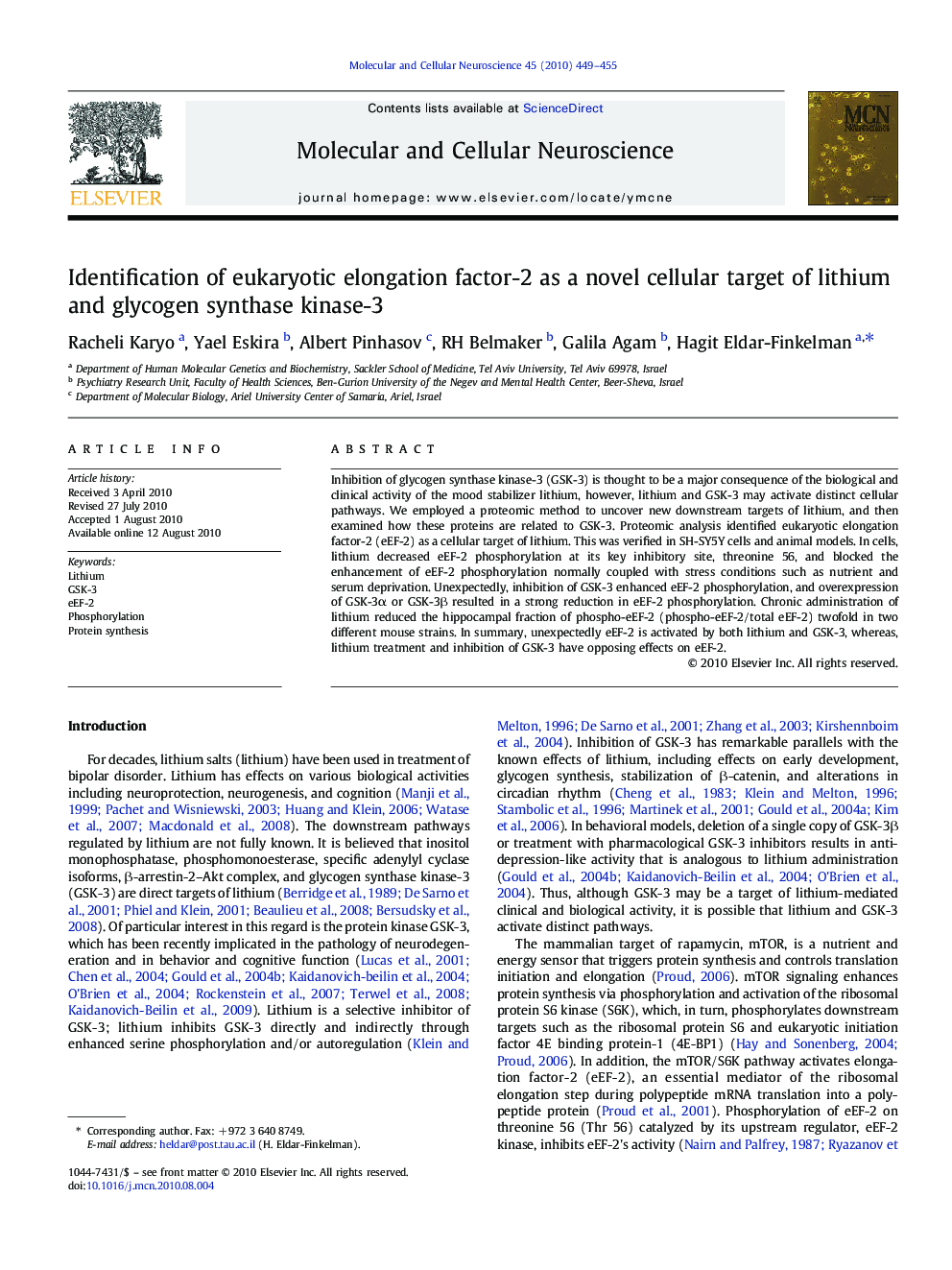| Article ID | Journal | Published Year | Pages | File Type |
|---|---|---|---|---|
| 10956617 | Molecular and Cellular Neuroscience | 2010 | 7 Pages |
Abstract
Inhibition of glycogen synthase kinase-3 (GSK-3) is thought to be a major consequence of the biological and clinical activity of the mood stabilizer lithium, however, lithium and GSK-3 may activate distinct cellular pathways. We employed a proteomic method to uncover new downstream targets of lithium, and then examined how these proteins are related to GSK-3. Proteomic analysis identified eukaryotic elongation factor-2 (eEF-2) as a cellular target of lithium. This was verified in SH-SY5Y cells and animal models. In cells, lithium decreased eEF-2 phosphorylation at its key inhibitory site, threonine 56, and blocked the enhancement of eEF-2 phosphorylation normally coupled with stress conditions such as nutrient and serum deprivation. Unexpectedly, inhibition of GSK-3 enhanced eEF-2 phosphorylation, and overexpression of GSK-3α or GSK-3β resulted in a strong reduction in eEF-2 phosphorylation. Chronic administration of lithium reduced the hippocampal fraction of phospho-eEF-2 (phospho-eEF-2/total eEF-2) twofold in two different mouse strains. In summary, unexpectedly eEF-2 is activated by both lithium and GSK-3, whereas, lithium treatment and inhibition of GSK-3 have opposing effects on eEF-2.
Related Topics
Life Sciences
Biochemistry, Genetics and Molecular Biology
Cell Biology
Authors
Racheli Karyo, Yael Eskira, Albert Pinhasov, RH Belmaker, Galila Agam, Hagit Eldar-Finkelman,
